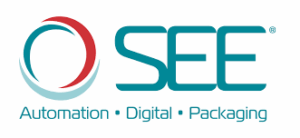The European engineering industry sits at the heart of the continent’s economic and technological progress, driving innovation across construction, infrastructure, manufacturing, and design. Representing over 25% of total EU industrial output, engineering is a critical enabler of sustainable growth, digital transformation, and competitiveness across Europe’s economies.
From building specification and wiring regulation to installation, safety testing, and certification, the industry encompasses a vast ecosystem of expertise, standards, and evolving technologies. For organisations aiming to enter or expand within the European engineering market, understanding regional regulation, skill requirements, and cultural nuances is essential to long-term success.
Market Size and Growth Potential
Europe’s engineering sector is one of the most advanced and diversified globally, with major hubs in Germany, the UK, France, the Netherlands, the Nordics, and Central Europe. It spans construction, electrical, civil, mechanical, and environmental disciplines, serving both public infrastructure and private industry.
The market continues to evolve under the influence of three key trends:
- The green and digital transition, supported by the EU’s Green Deal and Digital Europe Programme.
- Growing demand for renewable energy infrastructure and sustainable design practices.
- A critical focus on skills development, certification, and safety compliance.
This combination of traditional engineering strength and emerging technologies is creating new opportunities across Europe — but also new complexities for businesses seeking market entry or growth.
Key Engineering Sub-Industries (where 2Europe have experience)
Skills, Professional Membership and Certification
Europe’s engineering workforce is defined by strong professional standards and rigorous accreditation systems. Organisations such as the Engineering Council (UK), VDI (Germany), and FEANI (EU-wide) ensure consistent recognition of qualifications and professional conduct. However, labour shortages, especially in electrical, civil, and mechanical fields, are driving demand for skills certification, upskilling programmes, and cross-border recognition of engineering credentials. Companies operating in this space must adapt to local licensing frameworks and growing emphasis on digital competencies.
Assessments & Contracts
Project assessment and contract management are fundamental across Europe’s public and private sectors. Engineering contracts are governed by detailed national and EU procurement regulations that emphasise transparency, sustainability, and accountability. Growth in this area is driven by infrastructure investment, public-private partnerships (PPPs), and the EU Recovery and Resilience Plan, which funds green and digital projects. Firms offering contract evaluation, tender support, or compliance auditing must align with diverse legal and operational requirements.
Architecture & Design
Europe is a global leader in architectural innovation and sustainable design, with increasing integration between architects, engineers, and technology specialists. Building projects now prioritise energy efficiency, digital modelling (BIM), and sustainable materials. The shift toward “design for disassembly” and circular construction is transforming architectural engineering. For new entrants, understanding local building codes, aesthetic standards, and planning processes is vital.
Building Specification & Wiring Regulations
Stringent standards govern building safety and electrical compliance across Europe. Regulations such as the BS 7671 Wiring Regulations (UK) and the IEC and CENELEC frameworks (EU) set benchmarks for installation, testing, and energy performance. Market opportunities exist in compliance consultancy, testing services, and smart-building integration. However, differences in national adoption of EU directives require careful localisation for successful entry.
Engineering Installation & Maintenance
Installation and maintenance services are the backbone of Europe’s industrial and construction ecosystems. Demand spans everything from HVAC systems and renewable energy installations to automation infrastructure and factory maintenance. Increasing emphasis on predictive maintenance, remote monitoring, and energy optimisation is creating growth in digital-enabled engineering services. Entry into this market requires technical competence, safety certification, and regional partnerships.
Health & Safety Testing
Health and safety compliance is central to all engineering disciplines. European directives such as the Machinery Regulation (EU 2023/1230) and Health and Safety at Work Framework Directive require rigorous risk assessments, inspection, and testing. Sectors such as construction, manufacturing, and energy rely heavily on certified testing laboratories and accredited inspection bodies. Demand for digital safety systems, remote inspection, and AI-based monitoring is increasing rapidly.
Emerging and Fast-Growing Sub-Industries
Smart Construction & Building Automation
The rise of smart construction technologies — integrating IoT sensors, AI, and robotics — is revolutionising project management and site efficiency. Automated systems for monitoring, logistics, and quality control are reducing costs and improving safety across the sector.
Renewable Infrastructure & Green Engineering
Engineering solutions for wind, solar, and hydrogen infrastructure are in high demand as Europe accelerates its transition to renewable energy. Civil and electrical engineers play a crucial role in grid modernisation, offshore installations, and energy storage system design.
Digital Engineering & BIM (Building Information Modelling)
BIM adoption is now widespread across Europe, driving collaboration and data-driven decision-making in architecture, civil, and structural engineering. Digital engineering extends beyond design to asset management, predictive maintenance, and lifecycle sustainability tracking.
Additive Manufacturing & Advanced Materials
3D printing, composite materials, and lightweight alloys are transforming product design and construction components. European firms lead in the application of additive manufacturing to infrastructure, tooling, and energy systems, reducing waste and enabling faster prototyping.
Robotics & Automation in Engineering
Automation in engineering installation and maintenance is expanding, particularly in hazardous or precision environments. Collaborative robots (cobots) and drones are increasingly used for inspection, repair, and assembly, improving efficiency and worker safety.
Sustainable and Circular Materials
Material innovation is a major growth area. Europe’s focus on circular economy principles is promoting sustainable alternatives such as low-carbon concrete, recycled metals, and biodegradable polymers. Companies in this field must align with strict environmental and product-lifecycle reporting standards.
Market Entry Challenges
While the European engineering market presents significant opportunity, it also brings challenges that demand preparation and insight:
- Regulatory complexity: Compliance with varying national and EU technical, safety, and environmental standards.
- Skills shortages: Recruitment and retention of qualified engineers are growing challenges.
- Fragmented procurement: Public-sector contracts often require local partnerships and certification.
- Sustainability expectations: ESG and lifecycle assessment criteria now influence tender outcomes.
- Digital transformation: Integrating AI, BIM, and data platforms requires both investment and upskilling.
Supporting you with Expert Research
The European engineering sector remains one of the most technically advanced and strategically important in the world — balancing innovation, safety, and sustainability. From design and specification to installation, maintenance, and certification, the industry is evolving toward a more digital, data-driven, and environmentally responsible future.
At 2Europe, we provide in-depth engineering market research to help organisations understand customer needs, assess regulatory challenges, and identify opportunities for innovation and growth. Whether your focus is health and safety testing, skills certification, or smart infrastructure, 2Europe delivers actionable insights that guide strategic decisions and accelerate success across the European engineering landscape.
Clients we have supported in this industry sector:
- IET
- ICE
- NEC
- Thomas Telford







